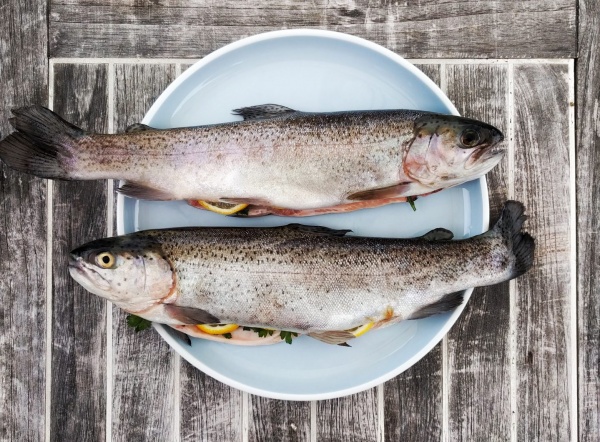
Sustainable Marine collagen is made from fish bi-products otherwise destined for waste
- Beauty
Unpacking marine collagen
3 experts reveal their thoughts
The old adage that beauty begins from within couldn’t be truer, but with so many beauty supplements currently on the market it can also be slightly confusing to know what’s the real deal and what’s a waste of money. Collagen powders are something that we’ve been debating a lot lately at G+S HQ. Do they work? What are they exactly? And – most importantly – should we be spending our hard-earned dollars on them?
For the uninitiated, collagen powders are fast becoming the supplement touted with the most plumping, anti-ageing and glow-inducing powers, and marine collagen is the most interesting of them all. For many of us, the idea of ingesting bovine (cow’s) collagen, especially in our morning smoothie, is a little hard to swallow, so having an alternative and slightly less icky option is very appealing.
The clincher however is that marine collagen is the most sustainable of all collagens thanks to its use of the by-products of fish – specifically its skin and scales – which would otherwise end up as waste.
What exactly is marine collagen?
Marine collagen is made from sustainably sourced fish skin and scales, otherwise destined for the bin, and contains primarily Type I collagen.
“Type I collagen makes up 85 per cent of our skin collagen and the building blocks of the skin’s structure. Most other animal sourced collagens are Type II, which can be beneficial for joints, but this does not help your skin,’’ says Mukti, founder of organic beauty brand Mukti.
“Likewise, plant ingredients can help support your collagen, but they are unable to replenish lost collagen supplies.”
Why should it be included in our beauty routine?
According to founder of naturopathic skin clinic Solstice Skin, Hayley Foggarty from 25 years onwards we lose two per cent of collagen from our skin each year, which can be sped up by diet and lifestyle factors including sun exposure, caffeine and alcohol intake.
“Clinical studies have proven marine collagen’s efficacy in increasing natural collagen levels and stimulating fibroblast proliferation,’’ Hayley says.
“Our fibroblasts produce collagen and elastin. Studies have shown to increase hydration, elasticity and skin density whilst decreasing skin roughness. Marine collagen helps to reduce and slow down the signs of ageing in the skin such as fine lines, skin sagging as well as brittle hair and nails.”
Is it superior to other collagen sources?
Studies show that marine collagen is absorbed 1.5 times more efficiently than other types of collagen, making it a very effective nutraceutical. Marine collagen is best for enhancing the skin’s structural integrity (otherwise known as reducing saggy skin), hydration and elasticity.
While Bovine collagen is recommended for skin, joints, ligaments and muscles making it more preferable for the whole body.
“What many people don’t realise is that as a supplement marine collagen powders can be used similarly to protein powders, and are what I recommend instead of protein powders for those that need extra dietary protein,’’ says holistic nutrition and herbal medicine practitioner Zoe Dent.
Does it actually work?
Yes and err no…
“Just like everything results are individual, the time frame may vary due to the level of ageing and condition of skin, hair and nails, Mukti says.
“Scientific research on daily marine collagen intake is that changes can be seen and felt as soon as four weeks onwards after daily supplementation. Increasing to 2-3 serves a day may accelerate the results.”
RELATED; This is the easiest beauty swap you’ll make all year
